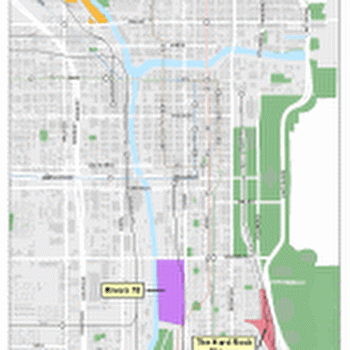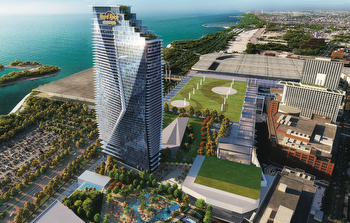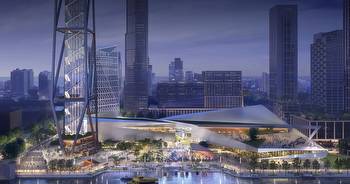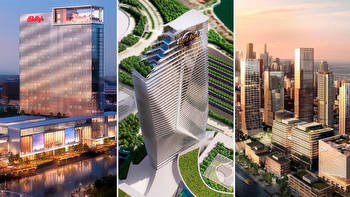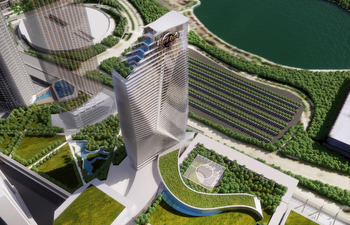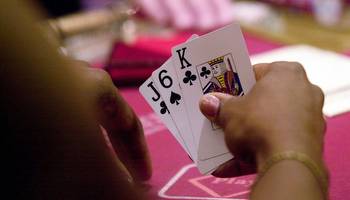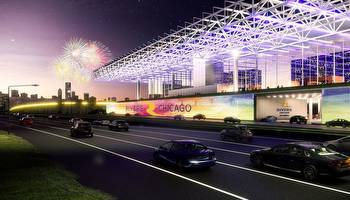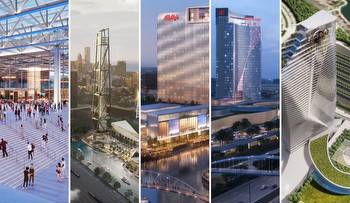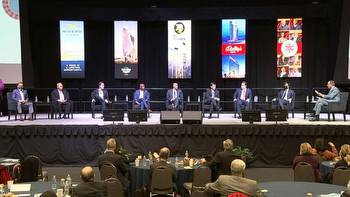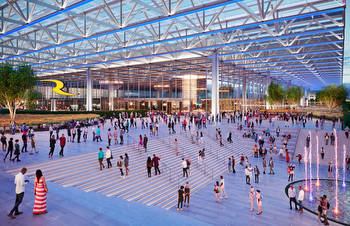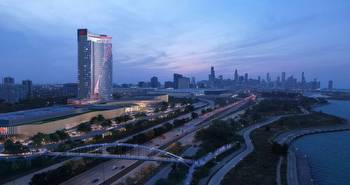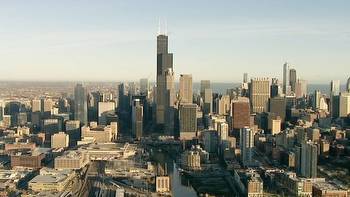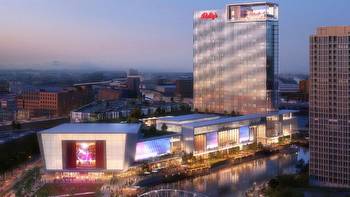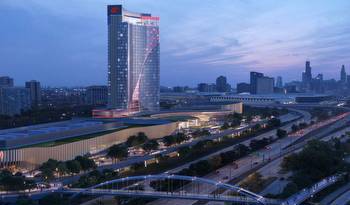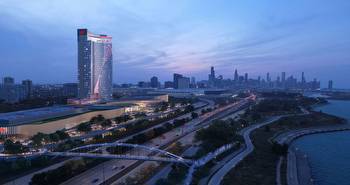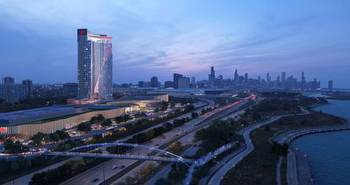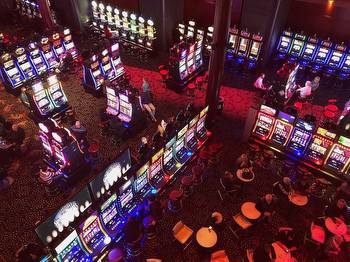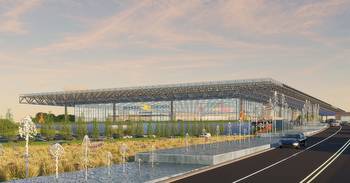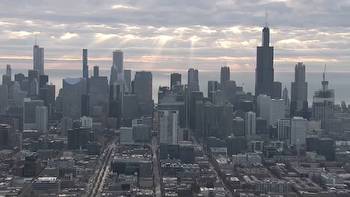Bronzeville Leaders Did Not Want A Casino At Michael Reese Development
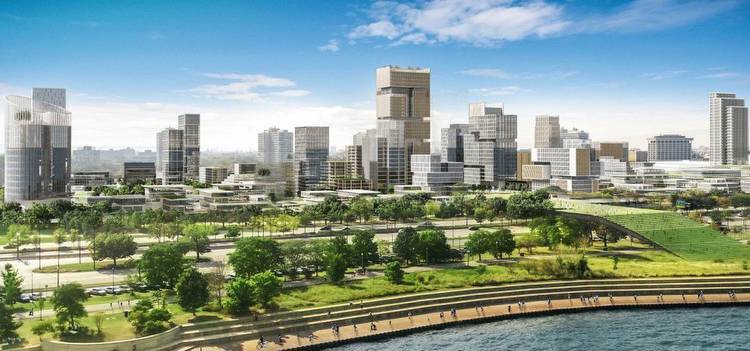
BRONZEVILLE — Some Bronzeville leaders are pushing back against the prospect of having the city’s first casino as a neighbor.
The city unveiled five potential casino sites in November. Four are clustered in the Near South Side, including one at the McCormick Place Marshalling Yards at 31st Street and DuSable Lake Shore Drive, near the old Michael Reese Hospital.
Ald. Sophia King (4th) long has opposed a casino anywhere on the South Side, previously saying it would be like “putting a casino in Harlem.” But King and others are particularly alarmed by the site that’s been proposed near the $3.8 billion Bronzeville Lakefront megadevelopment on the Michael Reese site — a project King has insisted would not include a casino.
The Bronzeville Lakefront project sits just south of McCormick Place and stretches from 26th to 31st streets between Lake Park Avenue and Martin Luther King Drive. It also includes the Prairie Shores homes near 29th Street and King Drive.
Leonard McGee, president of the Gap Community Organization and member of the Michael Reese Advisory Council, said community opposition to a casino dates back decades and hasn’t wavered. Residents who have attended community meetings made it clear that it is not what they envision for the neighborhood, he said.
McGee and others are worried a casino wouldlead to increased crime and gambling addiction —counteracting all the community hopes to accomplish with the Bronzeville Lakefront project, which received key City Council backing in July. Though adding to the city’s revenue base is a key part of the Bronzeville project, so is improving the quality of life for an area that has had to fight for everything it’s received, McGee said.
“I find it very conflicting that this city has agreed to the Michael Reese development of the marshalling yards with another project but now wants to put a casino in that same spot,” McGee said. “When people want to make money, they’ll do whatever is necessary to run over somebody who doesn’t have money to make the money.”
‘It Would Be A Detriment To Bronzeville’
Three mayors have worked to overhaul the Michael Reese property, which the city bought after the hospital closed in 2009.
Mayor Richard M. Daley envisioned the 48-acre site would be the home of the Olympic Village for the 2016 Games. The land also was floated as a potential home for Amazon’s second headquarters. Mayor Rahm Emanuel selected GRIT — a development team led by Chicago-based Farpoint Development — in 2017 to repurpose the site for the Bronzeville Lakefront project.
The first phase includes building a biomedical research facility, a welcome center, senior housing and a public park. The Singer Pavilion also would be repurposed, and developers are weighing plans to relocate the 27th Street Metra station to 31st Street.
The project is expected to take 20 years to complete and could include 7,000 units of homes; 8 million square feet of office, retail and research facility space; and 10 acres of parkland and open space.
Chicago mayors also have long worked to build a city casino.
Daley created a gaming commission 30 years ago to explore the possibility of bringing a casino to Chicago in hopes of boosting city revenue, eyeing several centrally located sites, including one near McCormick Place.
Daley’s plan stalled in the face of opposition from members of the City Council and the state legislature. When he tried to resurrect it in early 2004 with the help of the city’s tourism board, he was thwarted again, this time by then-Gov. Rod Blagojevich, who promised to veto any casino bill that crossed his desk.
Gov. JB Pritzker signed a casino expansion law in 2019, allowing Mayor Lori Lightfoot to lay the groundwork for her plan. A few weeks later, Lightfoot announced the former Michael Reese site was one of five potential casino locations on the South and West sides.
But Lightfoot also faced opposition out the gate. King ruled out Michael Reese, saying she wanted to preserve that land for the Bronzeville Lakefront project. Ald. Pat Dowell (3rd) dismissed a casino at Pershing and State, saying she wanted a grocery store there.
A state-hired consultant said none of the proposed South and West side sites would draw enough tourists due to the perception that the areas are unsafe.
King’s stance has not changed. She said she still has concerns a casino would lead to increased crime — although research has not consistently shown such cause and effect. She also worries about the casino’s impact on local businesses.
“Gambling impacts under-resourced communities,” King said. “Crime goes up, small businesses suffer because visitors are patronizing on-site retailers. It would be a detriment to Bronzeville.”
The $1.6 billion Marshalling Yards casino plan is led by Rhode Island-based Bally’s Corporation and would sit on the other side of the Metra tracks from Bronzeville Lakefront. It includes a 3,000-seat entertainment venue, 500 hotel rooms, six restaurants and cafes and a food hall. The casino would have 3,400 slots and 173 table games, according to the Mayor’s Office.
Christopher Jewett, Bally’s vice president for corporate development, said in a statement its proposal allows for a casino to be “fully integrated into the Bronzeville community development with pedestrian bridges and connectors, or it can be built as a destination, accessed only via public transit or vehicles.”
“If this site is selected, Bally’s will continue to work with the community and City to determine what is preferred and build to that,” Jewett said in the statement.
Jewett said the company is committed to incorporating community input and working with minority- and women-owned businesses during construction. They said it will be “built, owned and operated by Chicagoans, with a focus on Black and Brown investors, contractors, suppliers, consultants and employees.”
“This project is for the community, of the community and by the community,” Jewett said. “This means the entire project — from concept, to building, to hiring, to investing — will benefit the community.”
Crain’s Chicago Business reported while Bally’s will offer a 25 percent ownership stake to minorities, a city-required provision, a term sheet shows the company is reserving the right to buy back those shares six years after the casino opens. Those owners would not be able to refuse a buy-back offer, the price of which would depend upon the casino’s profitability the prior year, according to Crain’s.
Kinshasa Baldwin, an architect also on the Michael Reese Advisory Council, said she shared McGee’s concerns, and also worried about how the casino would aesthetically impact the south lakefront.
“You can’t just put a casino next to Bronzeville Lakefront and think that it’s going to be OK. It’s a completely different dynamic and impact,” said Baldwin, a Bronzeville native. “We would have to go back and rehash some of those conversations.”
For Baldwin, it’s a matter of design and compromise: What’s the best fit for the neighborhood? How would it complement existing buildings? Would the operator be open to making adjustments for an end result it and the community could benefit from?
“Through architectural study, analysis and conversations there are ways to strategize and make concessions that might not normally be in a casino,” Baldwin said. “But for it to fit in this location, I think that would be required.”
Bronzeville isn’t the only community to raise alarms about a nearby casino.
Chinatown leaders said its community has faced longstanding issues with problematic gambling, exacerbated by exploitative marketing. They have said if a casino opens nearby, particularly at “The 78” development site just north of the neighborhood, it must come with resources to prevent gambling addiction.
Not everyone opposes the idea. In an opinion piece, N’Digo Magazine publisher Hermene Hartman called the casino a “once-in-a-lifetime opportunity,” saying the location would be transit-friendly and ideal for conventioneers.
Hartman did not respond to requests for further comment.
“The casino will bring thousands of great-paying jobs … table game dealers start at $60,000, and cocktails waitresses and bartenders earn upward of $70,000. The gaming industry brings both a good salary and tips galore. That helps solve unemployment and poverty-type issues,” Hartman wrote. “Property values at the nearby Prairie Shores and Lake Meadows complexes and private homes will probably increase if not soar. Other aldermen are biting at the bit to host the casino in their wards for exactly the reasons that King has objections.”
Michael Strotter, owner of The Burger Point, 1900 S. State St., believes a nearby casino could be what he needs to stay open. The last year has been hard; though the business has received help through relief programs, skyrocketing supply costs have hurt its bottom line, he said. The Near South Side sites proposed for a casino are within 2 miles of his restaurant.
“Businesses in the South Loop like mine depend heavily on visitors,” said Strotter, a former director of radiology at Michael Reese Hospital. “Each day, I’m wondering how long I can continue to keep the business open. I’ve been fortunate to retain many of our employees, but that comes at a cost.”
It’s not clear when the city will choose a finalist, which will require City Council approval. Chief Financial Officer Jennie Huang Bennett previously said it could be in “early 2022.”
In a statement to Block Club, Lightfoot’s office said the city “conducted a set of substantive meetings with bidders” earlier this month, discussing everything from financing to project location, asking them to provide details as to why the location they selected was most viable. Once the mayor receives all of the responses, she’ll evaluate them and plan the next steps, according to her office.
But some residents say they don’t feel heard.
“It’s like a doctor writing a prescription for a patient without even talking to them. ‘Hey, doc, I don’t want this medicine.’ ‘Well, take it anyway because we know what’s good for you.’ That’s the scenario playing out here,” McGee said.
, an independent, 501(c)(3), journalist-run newsroom. Every dime we make funds reporting from Chicago’s neighborhoods.
Click here to support Block Club with a tax-deductible donation.
Thanks for subscribing to Block Club Chicago, an independent, 501(c)(3), journalist-run newsroom. Every dime we make funds reporting from Chicago’s neighborhoods. Click here to support Block Club with a tax-deductible donation.








